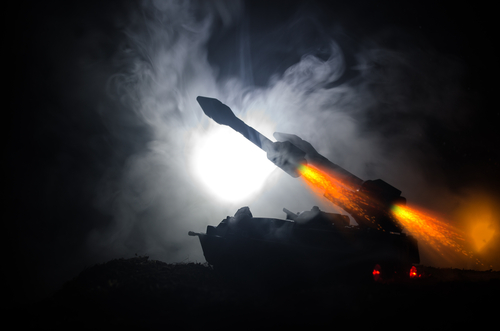The Middle East faces a new surge of violence as Iran threatens to enter the war against Israel, signaling a potentially catastrophic regional escalation. Iranian President Masoud Pezeshkian’s comments at the UN General Assembly on September 23, 2024, intensified concerns, with Iran’s leadership warning that Hezbollah, the Iranian-backed militant group in Lebanon, “cannot stand alone” in its fight against Israel. As Israeli forces target Hezbollah's positions in Lebanon, Iran’s leaders have made clear that their involvement in the conflict is on the table if hostilities continue to escalate.
Israel has been locked in conflict with Hezbollah since October 2023, when Hamas launched a surprise attack, killing over 1,200 Israeli civilians. Hezbollah, acting in solidarity with Gaza, has repeatedly launched missile attacks on northern Israel, which has prompted harsh retaliatory strikes. Israel’s ongoing aerial bombardment of Hezbollah targets has killed hundreds, including key commanders, while Hezbollah's missile strikes have caused numerous casualties on the Israeli side, further escalating the situation.
The Syrian rebels in the north of the country celebrate the blow to thousands of Hezbollah operatives by distributing sweets.
When Muslim hate other Muslims…. #lebanon #beriut #idf #hezbullah #israel #pagers #pager #Iran #syria pic.twitter.com/HK03vzcdpp
— Elly 🎗️Israel Hamas War Updates (@elly_bar) September 17, 2024
The situation worsened in late September when Hezbollah fired over 300 rockets into northern Israel. In response, Israeli Prime Minister Benjamin Netanyahu vowed to continue military operations, declaring that negotiations with Hezbollah would only take place “under fire.” Netanyahu, addressing the public, stated that Israel would strike Hezbollah with “full force,” warning that the group will “receive a very strong response” for each missile attack. With Israel ramping up its military presence, including calling up reserve brigades, it appears that a ground invasion of Lebanon is looming.
Iran’s involvement could drastically change the nature of the conflict. President Pezeshkian has framed Israel’s actions as barbaric, arguing that they could lead to a full-scale regional war. Iranian officials have hinted at broader military support for Hezbollah, suggesting that their proxy in Lebanon would not face Israel alone. This statement signals that Iran is prepared to intervene if Hezbollah’s position deteriorates further under the weight of Israeli strikes.
Oooo lord crazy photos and videos
From #Lebanon right now.Good chance to remind you all
There are no winners in a war
But there are losers.Part #3 #IsraelLebanonWar #LebanonIsraelWar#lebanon #beriut #idf #hezbullah #israel #Iran pic.twitter.com/ibyqIQSbev
— Elly 🎗️Israel Hamas War Updates (@elly_bar) September 23, 2024
In a broader context, Israel has been wary of Iranian interference throughout the year-long conflict, particularly as Iran continues to supply Hezbollah with weapons. Syria, another Iranian ally, has also been a staging ground for Hezbollah attacks. Israeli strikes on Syrian targets have aimed to disrupt the flow of Iranian arms, but Iran’s deep involvement in the region makes it difficult to prevent further escalations.
The United States and other Western nations are closely watching the situation, fearing that Iran’s direct involvement could destabilize the entire Middle East. The Biden administration has already taken steps to bolster Israel's defenses, including deploying additional military assets to the region to deter Iranian aggression. The White House has warned of the possibility of a regional war if Iran fully engages, a scenario that could draw in more actors and destabilize key areas of the Middle East.
Iran’s leadership insists that the solution to the ongoing Israeli-Palestinian conflict lies in a referendum for Palestinians. At the UN, Pezeshkian argued for an end to Israeli “barbarism” in Lebanon and called for international pressure to force Israel into a ceasefire. However, with both Israel and Hezbollah seemingly committed to continuing the fight, the prospects for peace look grim.
As tensions continue to rise, the specter of Iran joining the conflict remains a real and dangerous possibility. If Iran enters the fray, the war between Israel and Hezbollah could spiral into a larger regional conflict with devastating consequences for the entire Middle East.

